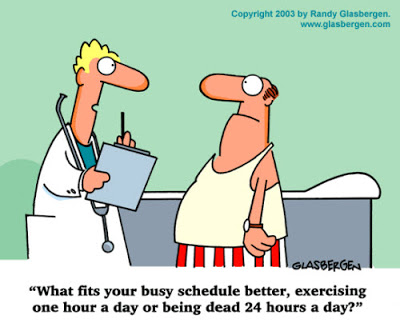Five Things to Remember Before You Start Dieting
Before you start dieting, there are a number of things to keep in mind. A healthy diet plan helps you take off the weight gradually. It also establishes eating and lifestyle habits that you can sustain in the long-term.
1. Create Healthy Eating Patterns
When getting ready to start dieting, you want to pay attention to what goes into creating healthy eating patterns. Create a well-balanced diet plan that nourishes your body and provides enough calories to keep you energetic. Eat regular meals. Be sure to include nutritious snacks and some of your favorite foods so that you do not feel deprived in the course of the diet.
2. Practice Moderation
It is common for eager dieters to dive into a diet plan that excessively restricts calories, eliminates a food group entirely or involves drinking juices instead of eating solid foods. These types of diets are extreme and tend not to work in the long run. You want to avoid any diet plan that robs you of energy or makes you want to give up dieting altogether. Practice moderation. Set a reasonable weight loss goal of 1 to 2 pounds per week and give yourself an adequate number of weeks or months to achieve your goal.
3. Exercise Regularly
Exercise is an important component of a solid weight loss plan. Before you start dieting, give some thought to the types of exercise that motivate and energize you. If you are already exercising and just want to intensify your workouts, consider asking a friend if he or she wants to exercise with you. You can push and motivate each other. You might also consider hiring a personal trainer to accelerate your workout efforts. Most importantly, establish an exercise regimen that you will be able to sustain once you have taken off the weight.
4. Get Adequate Sleep
While diet and exercise are common diet-related topics, the subject of sleep is not often discussed. Researchers have found that sleep plays a very important role in weight loss. Before you start dieting, examine your sleep patterns. Be sure to get in the habit of sleeping for about 7-8 hours each night. This will help to keep your physiology balanced. Sleep deprivation leads to hormonal changes that increase your appetite and decrease your ability to feel full. Getting adequate sleep will strengthen your dieting efforts.
5. Create a Post-Diet Weight Maintenance Plan
Before you start dieting, give some thought to what your life will look like once you have reached your weight loss goals. Define your ideal weight. Think about how many calories you will need to eat to maintain your ideal weight. Consider the amount of exercise you will need to maintain your ideal weight.
Thinking about these factors ahead of time will help you to design a post-diet weight maintenance plan that makes sense for you. This will mentally prepare you for the day when you do achieve your weight loss goal. When that day arrives, you will already have a plan in place for keeping off the weight you worked so hard to lose.
-
Introducing Fruit, vegetables and All-natural Food items for Safe Weight Reduction
Vegetables are loaded with important nourishing substances which are a
-
Eliminating Weight Gain From Stress
When the rest of the world takes a toll
-
The Facts Behind Weight Gain, Weight Loss and More Weight Gain
Modern living to some degree entices kid
-
Exercise and weight loss: the importance of resting energy expenditure
If one person cuts back on calories without exercising and anot
-
5 ways to eat less without dieting
Simple ways to reduce the amount you eat. 1. Taste your f
-
8 Weight Loss Tips For Women Over 40
- DON'T MISS
- Weight Loss Tips for Men Over 40
- How to Reduce the Feelings of Hunger
- Dieting Mistakes That Keep You Heavy
- Does Diet Matter In Weight Loss?
- HCG Diet Kits Offer Effective Weight Loss Solution
- What Is In T5 Thermobolics?
- The New Superfoods for Weight Loss
- Why Its Important for Teens to Keep Fit
- How to Set Realistic Fitness Goals
- Diet Solution Program - How To Keep Motivated For Your Kid To Lose Weight




